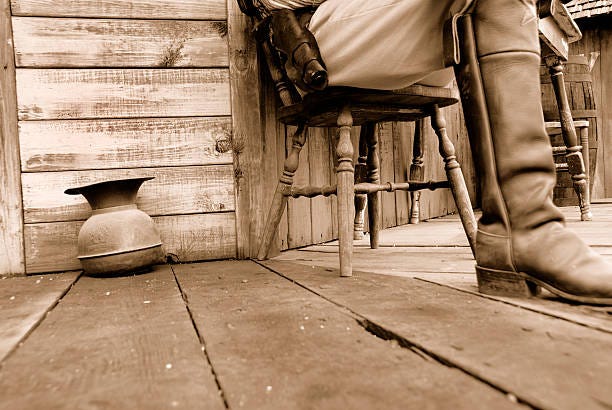Way Back When Pungent Odors Were the Norm
Ewww! Think of all the movies you’ve seen and romance novels set pre-1888 with hot romantic scenes. The pungent body odors must have been stifling in reality. Ewww!
Let’s face it. Most of us have been suckered into the myths of westerns, romances, adventure movies and novels set in pre-1888 when Mum deodorant was introduced to save the day.
Part 1 My Take On “Pungent” Odors
What prompted me to meditate about this odd subject was the frequency of deodorant ads on television every night! One new brand suggests that every body part from feet to knees to underarm needs deodorant (all natural of course, and the more you lather on —you buy more to smell like wealthy moguls). WHO knew someone would sneak up and smell our elbows!
For the sake of pure humor, do you realize these real people stunk to high heaven?The stink was so bad, perfumes and herbal ointments, or incense were supposed to disguise their B.O. Handkerchiefs, nosegays, and bouquets were supposed to hide the reality of rotten teeth, body odor, sweat-soaked clothing never washed in many cases.
And you may never have seen a real spittoon used by tobacco chewers. It’s the filthiest, most disgusting object used even in the 1950’s. Yes, primitive it was. Now spitters use paper cups. Ewww!
So, those cowboys and saloon gals probably needed to be drunk to forget aromas circulating around the spittoons. Spittoons were beyond gross, and they had to be emptied by paid employees, slaves, or wives like the bedside chamber pots of the wealthy. Somehow movie mythology leaves these nasty, fun activities out. If you Google spittoons, you see hundreds of brass, ceramic, china spittoons (the latter for the wealthier spitters and women)!
Then, think about those tubs of not-hot water for bathing cowboys who hadn’t had baths for months. Do you really think they changed the water for every new bather? Ha! They simply added more hot water to the used dirty water unless you’ve seen drains and city water! Sit back and watch some old Westerns and adventure movies who make the myths people buy into. Sorry to break your bath bubbles!
Part 2
If you think I’m joking, read “Our Pungent History: Sweat, Perfume, and the Scent of Death” which was written by Hunter Oatman-Stanford in 2016. I found this article fascinating after I had written my modest B.O. piece, but Hunter Oatman-Stanford has written a must-read for our “genteel” moderns of all ages. It takes us from Egyptians through the centuries until now. I’ve included one quote which should tempt you to read the whole article.
https://www.collectorsweekly.com/articles/our-pungent-history/
“Even while the clergy were exalting religious incense, they sometimes derided perfume as a sinful, decadent indulgence. For several centuries, many Christians rejected bathing for its connection to the sin of pride or vanity, which explains, if only in part, why they were seen as dirty and malodorous by the rest of the developed world. “With the emergence of Christianity, the whole meaning of smell changes and the vocabulary expands,” Reinarz says. “There were frequent references to the early saints with the devout often saying that, when these first martyrs died, their bodies had emitted fragrant scents. The problem, of course, is that when the scent industry started to develop, anybody could smell like a saint, so the religious language changed and instead of talking about the smell of a saint, people began to focus on detecting the false odors of sanctity—since even the harlot or prostitute could now buy perfume and wear these ‘sacred’ scents.”






Great read, Diane. A group of us in high school were recruited as extras for the opera Cavalleria Rusticana, for a grand wage of $5 a show. I came home from the first rehearsal with the monk's habit that went with my role. One whiff and my mother sent me to the shower and promptly threw the habit in the washer. I wonder if that was the first time that the garment was ever washed. But to judge from your post, the garment was historically accurate from at least the olfactory perspective.😂.
I have to think of Native American who used herbs after bathing in streams or lakes. They could not hunt a deer or other prey if they smelled and knew what down wind meant. Then the real Indians of India new bathing and unguents as well as Egyptians and Roman baths were common. It’s no wonder at the fall of the Roman Empire that death and decay took hold of the nostrils with the dark ages. Not all cultures were nose-worthy but Europeans past Shakespearean time just added another layer of clothes. How far has the human race come? Only the nose knows.